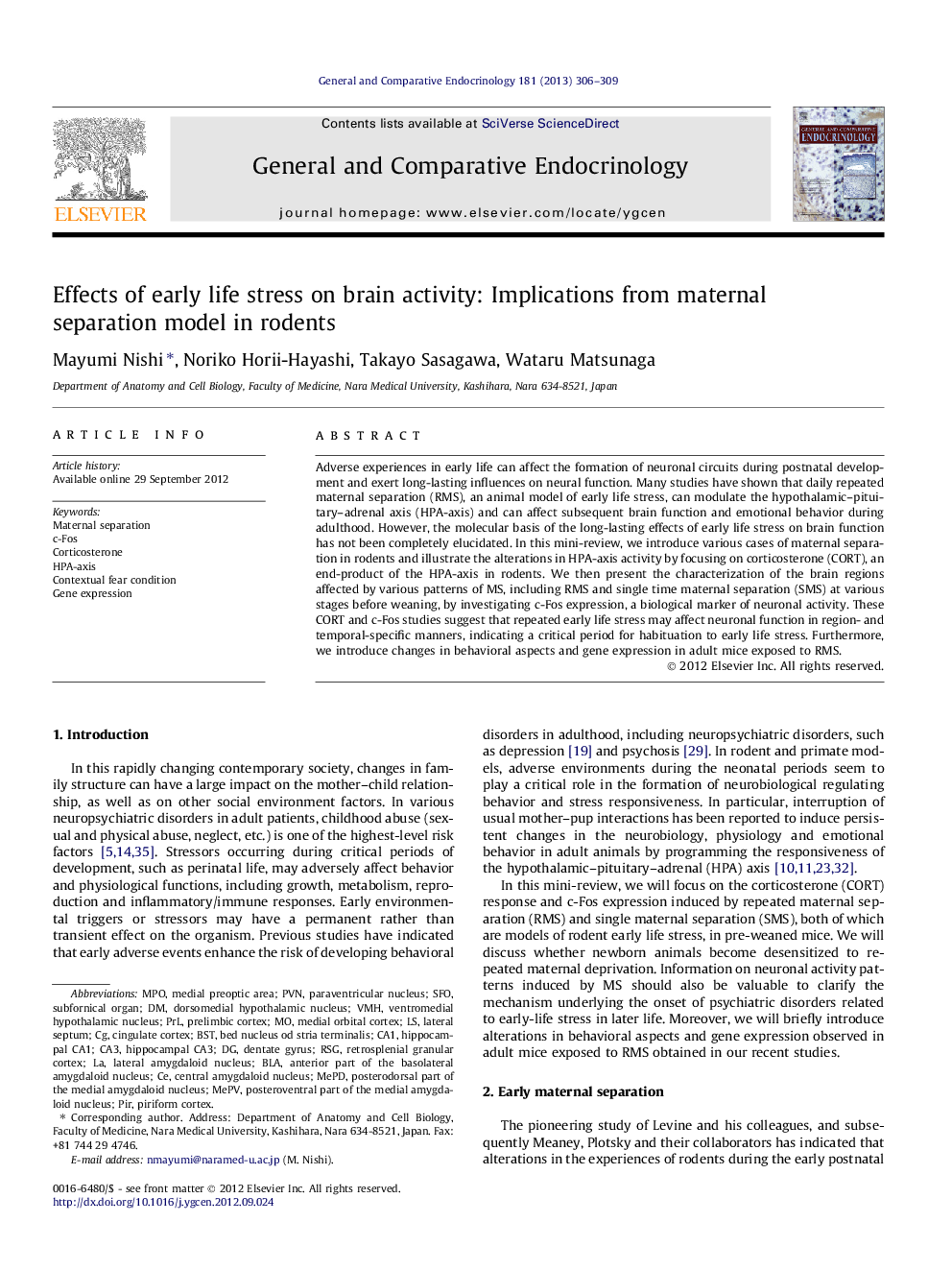| کد مقاله | کد نشریه | سال انتشار | مقاله انگلیسی | نسخه تمام متن |
|---|---|---|---|---|
| 2800432 | 1568924 | 2013 | 4 صفحه PDF | دانلود رایگان |

Adverse experiences in early life can affect the formation of neuronal circuits during postnatal development and exert long-lasting influences on neural function. Many studies have shown that daily repeated maternal separation (RMS), an animal model of early life stress, can modulate the hypothalamic–pituitary–adrenal axis (HPA-axis) and can affect subsequent brain function and emotional behavior during adulthood. However, the molecular basis of the long-lasting effects of early life stress on brain function has not been completely elucidated. In this mini-review, we introduce various cases of maternal separation in rodents and illustrate the alterations in HPA-axis activity by focusing on corticosterone (CORT), an end-product of the HPA-axis in rodents. We then present the characterization of the brain regions affected by various patterns of MS, including RMS and single time maternal separation (SMS) at various stages before weaning, by investigating c-Fos expression, a biological marker of neuronal activity. These CORT and c-Fos studies suggest that repeated early life stress may affect neuronal function in region- and temporal-specific manners, indicating a critical period for habituation to early life stress. Furthermore, we introduce changes in behavioral aspects and gene expression in adult mice exposed to RMS.
► MS affects HPA-axis in different manner depending on developmental stage.
► Results of c-Fos study indicate that MS affects the activity of hypothalamic and limbic neurons.
► MS may affect neuronal activity in region- and temporal-specific manners.
► MS deteriorated aversive memory caused by contextual fear conditioning.
► MS induced the alteration of gene expression that could be regulated by GR in the hippocampus.
Journal: General and Comparative Endocrinology - Volume 181, 15 January 2013, Pages 306–309